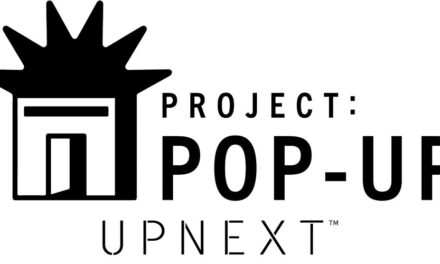MELROSE – The U.S. Department of Homeland Security’s Federal Emergency Management Agency (FEMA) announced this week that federal disaster aid has been made available to the Commonwealth of Massachusetts to supplement commonwealth, tribal and local recovery efforts in the area affected by a severe winter storm, snowstorm and flooding during the period of Jan. 26-28.
Gov. Charlie Baker wasn’t happy about it, and neither was Melrose Mayor Robert J. Dolan.
In a memo to the aldermen Tuesday, April 14, Dolan writes, “I share Governor Baker’s deep disappointment in the federal government’s decision to dramatically limit disaster relief to Massachusetts as well as the cities and towns in the Commonwealth.
“After the historic February storm, I think most if not all of us believed we would receive more assistance, given the unprecedented nature of this targeted event and the totally unforeseen budgetary, operational, and economic impact of the month of February.
“To be honest, I don’t see any rationale for the decision made, and I believe that to so dramatically limit the relief is a total failure on the part of the federal government. Cities and towns are particularly affected, due to our limited ability to raise revenue and the impact that unforeseen disasters have on our public schools, our public safety, and our small businesses. Although this event was unique, greater assistance has been provided to other states and localities throughout the country when they had to deal with unprecedented natural disasters. I believe Governor Baker made an incredibly strong case, and the resulting decision is not only disappointing but has negative impacts that will be seen over the next several years. To put it into perspective, the City of Melrose spent $2.2 million during this disaster, and we are anticipating federal assistance of just over $200,000. These snow costs are the equivalent of over two years of new taxation and growth in the city.
“I think this is yet another example of the federal government’s withdrawal from local issues, be it early intervention programs, free and reduced lunch programs, public safety, and programming for at-risk groups. We will proceed forward and, as always, manage the community to the best of our ability,” Dolan concluded.
President Obama’s action Monday makes federal funding available to Commonwealth, tribal and eligible local governments and certain private non-profit organizations on a cost-sharing basis for emergency work and the repair or replacement of facilities damaged by a severe winter storm, snowstorm and flooding in Barnstable, Bristol, Dukes, Essex, Middlesex, Nantucket, Norfolk, Plymouth, Suffolk and Worcester counties.
In addition, federal funding is available on a cost-sharing basis for snow assistance for a continuous 48-hour period during or proximate to the incident period in Barnstable, Bristol, Dukes, Essex, Middlesex, Norfolk, Plymouth, Suffolk and Worcester counties.
Federal funding is available on a cost-sharing basis for hazard mitigation measures for all counties within the commonwealth.
Mark H. Landry has been named as the Federal Coordinating Officer for federal recovery operations in the affected area. Landry said additional designations may be made at a later date if requested by the commonwealth and warranted by the results of further damage assessments.
Following is a summary of key federal disaster aid programs that can be made available as needed and warranted under President Obama’s disaster declaration issued for the Commonwealth of Massachusetts.
Assistance for the Commonwealth and affected local and tribal governments can include as required:
• Payment of not less than 75 percent of the eligible costs for emergency protective measures taken to save lives and protect property and public health. Emergency protective measures assistance is available to state and eligible local governments on a cost-sharing basis. (Source: FEMA funded, commonwealth administered.)
• Payment of not less than 75 percent of the eligible costs for repairing or replacing damaged public facilities, such as roads, bridges, utilities, buildings, schools, recreational areas and similar publicly owned property, as well as certain private non-profit organizations engaged in community service activities. (Source: FEMA funded, commonwealth administered.)
• Payment of not less than 75 percent for snow assistance, for a specific period of time during or proximate to the incident period. Snow Assistance may include snow removal, de-icing, salting, snow dumps, and sanding of roads. (Source: FEMA funded, commonwealth administered.)
• Payment of not more than 75 percent of the approved costs for hazard mitigation projects undertaken by state and local governments to prevent or reduce long-term risk to life and property from natural or technological disasters. (Source: FEMA funded, commonwealth administered.)
How to apply for assistance:
• Application procedures for state, tribal and local governments will be explained at a series of federal/commonwealth applicant briefings with locations to be announced in the affected area by recovery officials. Approved public repair projects are paid through the state from funding provided by FEMA and other participating federal agencies.
FEMA’s mission is to support our citizens and first responders to ensure that as a nation we work together to build, sustain and improve our capability to prepare for, protect against, respond to, recover from and mitigate all hazards.
Follow FEMA online at www.fema.gov/blog, www.twitter.com/fema, www.facebook.com/fema and www.youtube.com/fema. Also, follow Administrator Craig Fugate’s activities at www.twitter.com/craigatfema.
The social media links provided are for reference only. FEMA does not endorse any non-government websites, companies or applications.




